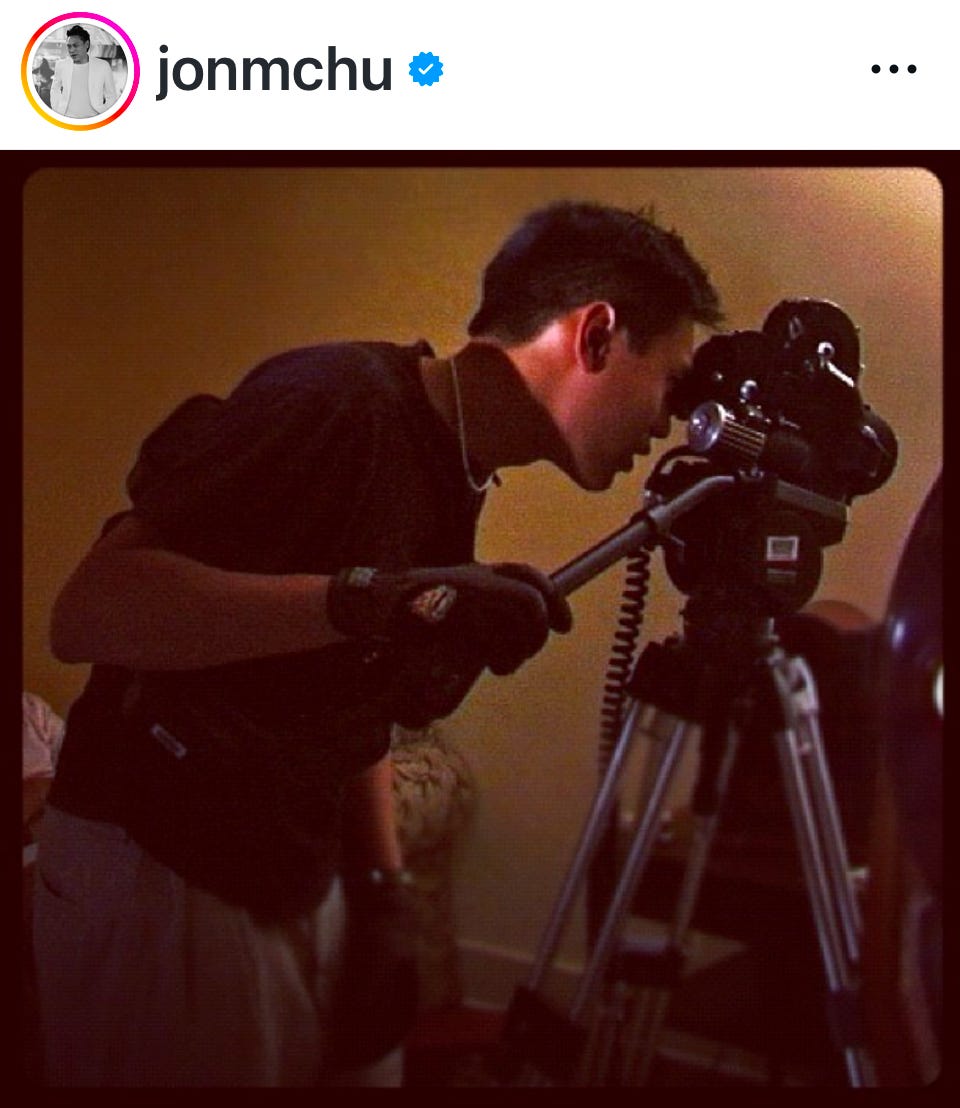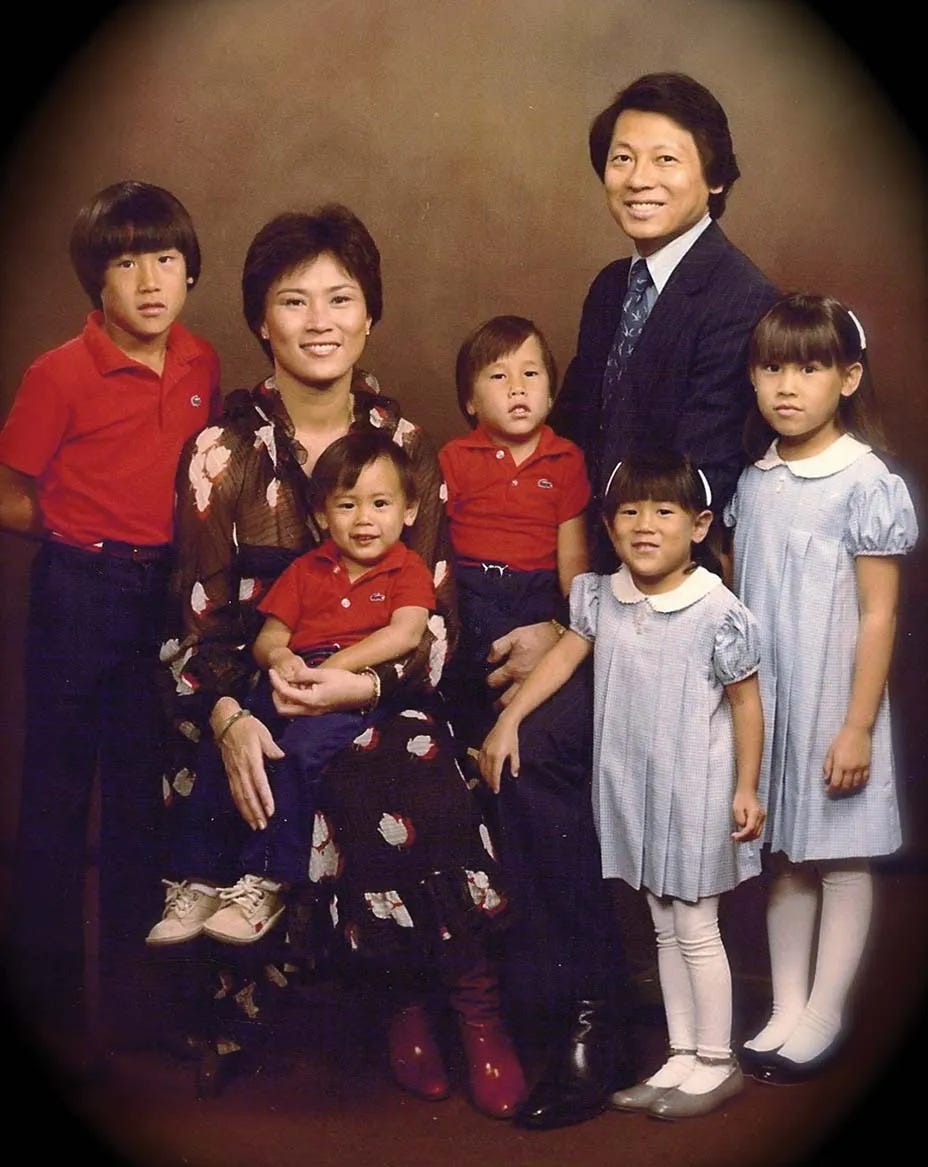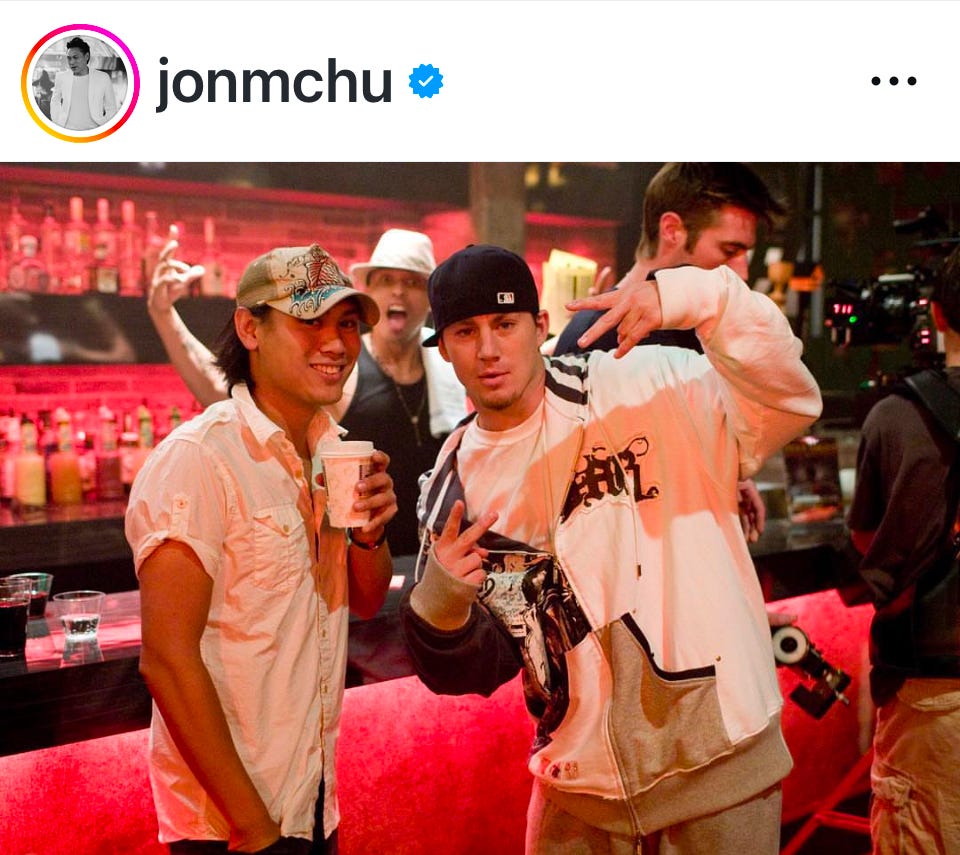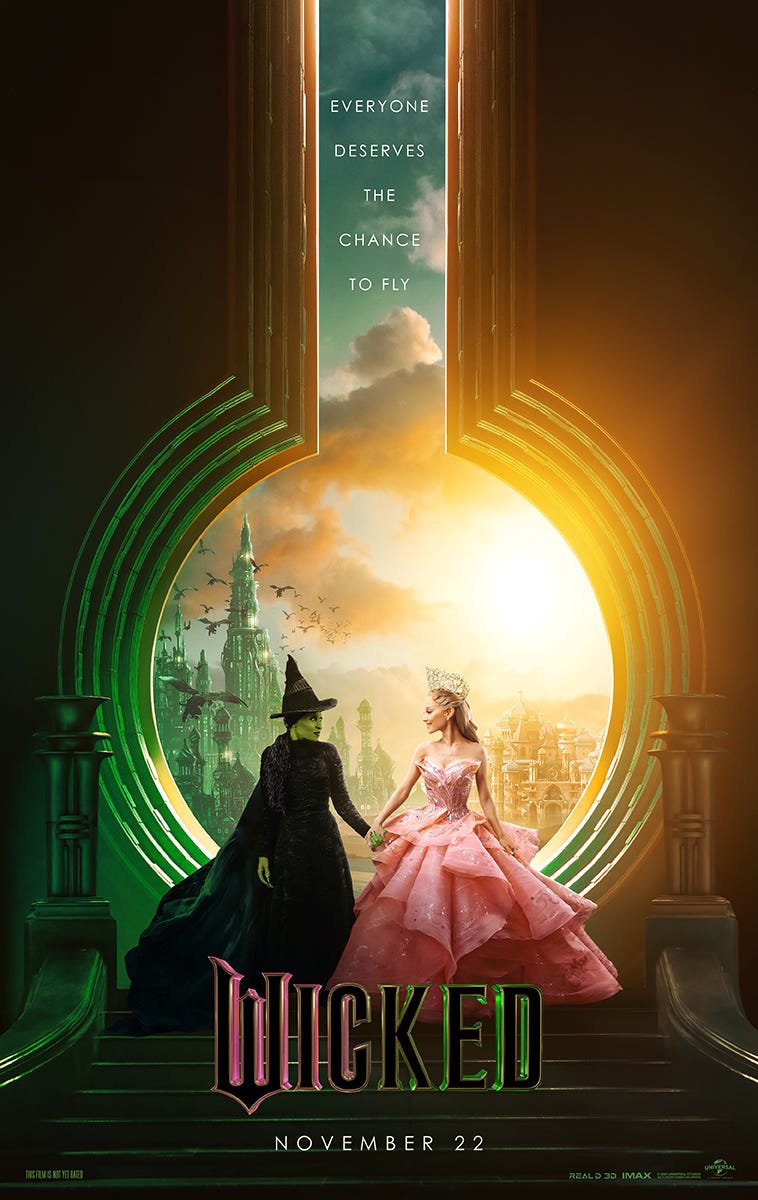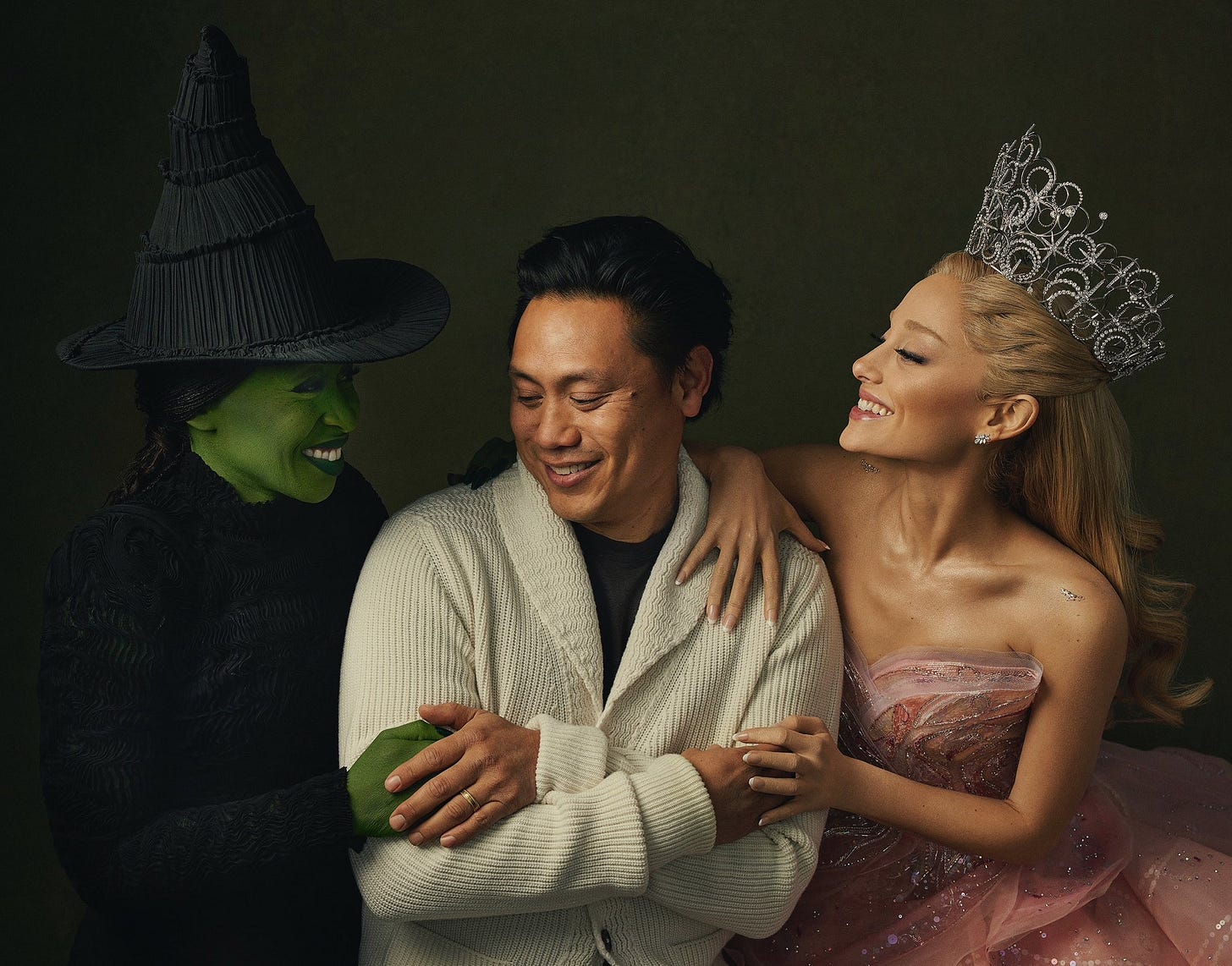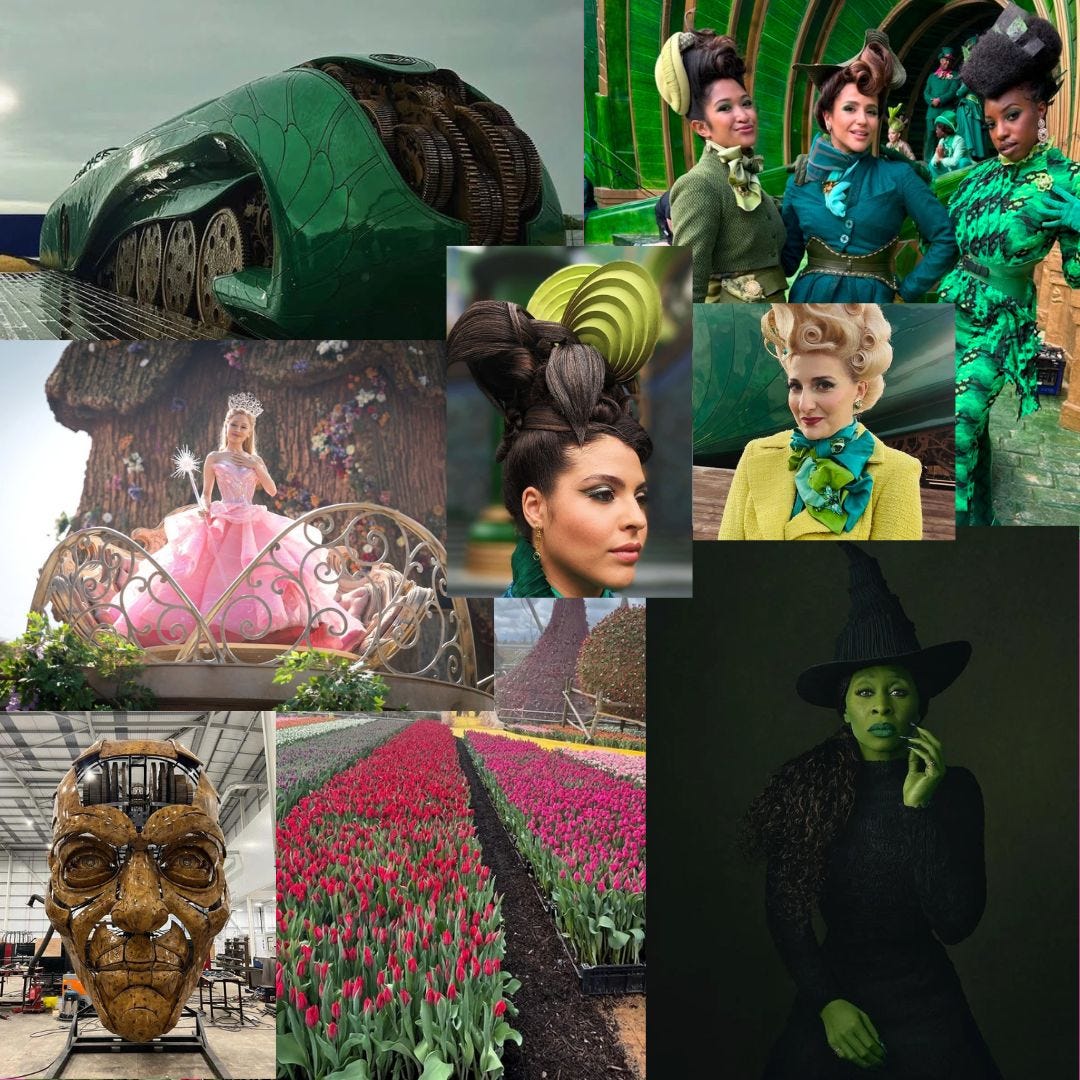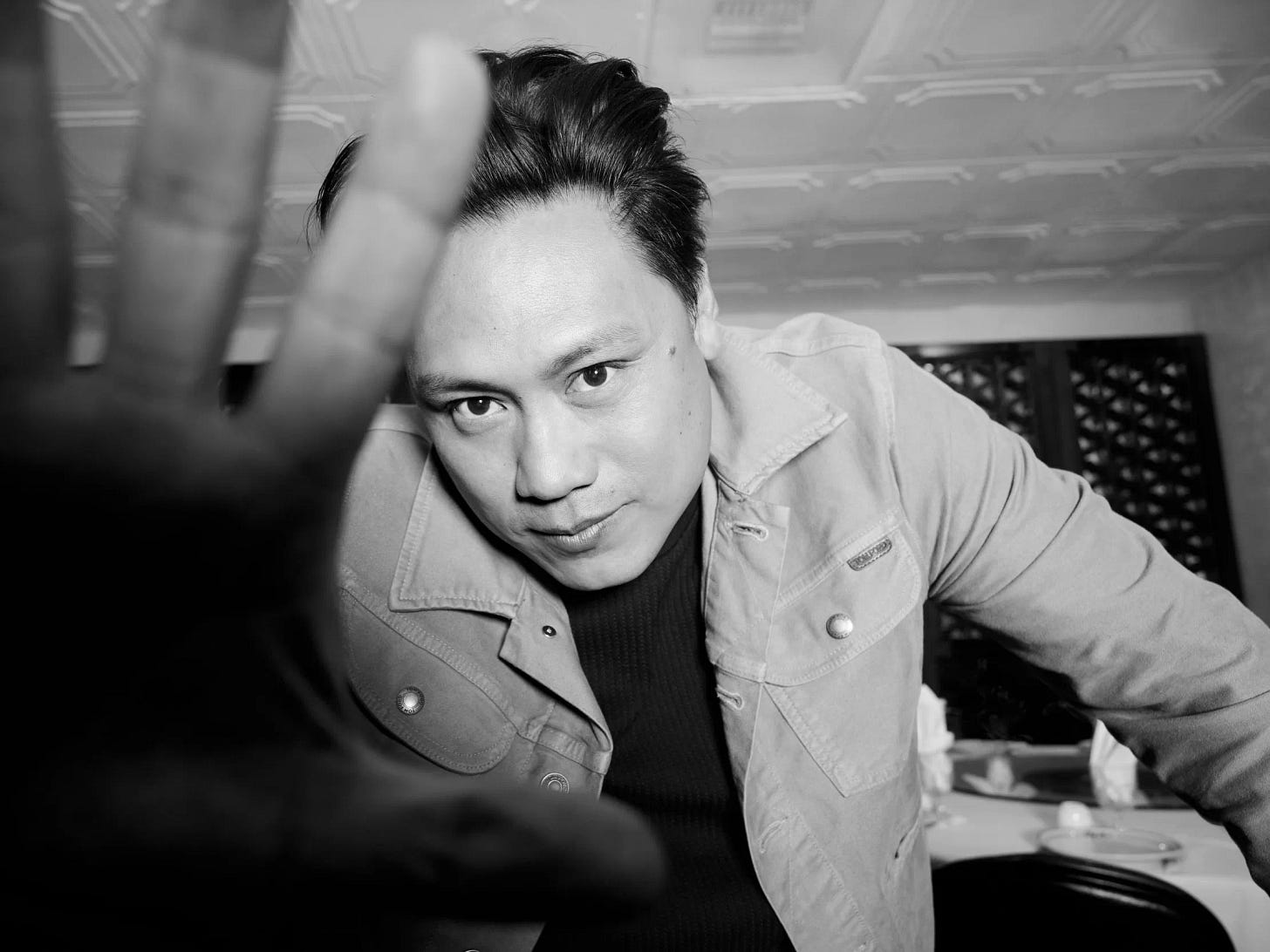Asian A.V. Club newsletter #37: Jon M. Chu
Director Jon M. Chu talks about how his family's support laid the foundation for his creative successes and why working with troublemakers is the only way for him.
When it was announced that the beloved musical Wicked was finally being adapted into a movie (well, two movies), the attachment of director Jon M. Chu at the helm came as no surprise to his longtime fans. The prolific director-producer has built a steady career, beginning as the go-to filmmaker for dance-focused features (The LXD, Step Up series) before moving on to commercial hits like G.I. Joe: Retaliation and Now You See Me 2. However, it was Chu's bold decision to direct Crazy Rich Asians—a groundbreaking rom-com featuring an all-Asian cast—that gave him both the pride and the clout to take on larger scale event films.
By now, the overwhelming success to Wicked proves that his instincts are on point. With $634 million worldwide (and counting), it has officially become the highest-grossing musical film adaptation of all time. Chu has an even busier 2025 ahead, as he puts the finishing touches on Wicked: Part 2, makes his Broadway debut with Crazy Rich Asians: The Musical, and is rumored to be taking on projects such as a Britney Spears biopic, Joseph and the Amazing Technicolor Dreamcoat, and even a Dr. Seuss adaptation!
We recently managed to catch a moment in Jon M. Chu’s packed schedule to discuss how his family’s early support was instrumental to his growth as a filmmaker and the importance of collaborating with the right creative partners—especially those who were there from the beginning.
Asian A.V. Club: I love how your parents, especially your mom, played such a big part in supporting your filmmaking career. In fact, didn’t your mom take you to see Wicked on stage in the first place? Can you talk about the relationship you have with your parents and how they inspired you?
Jon M. Chu: Whether I like it or not, I was forged into existence being the youngest of five kids. (laughs) First of all, you have to be an amazing woman to raise five kids who are really close to each other. We talk almost every day, and we're also on a text chain, and so I really admire that about her and my dad. I mean, they worked really hard to give us room to dream, and they talk about optimism at all times in the household. They wanted us to be engulfed in in the arts, and so they took us to shows every weekend. They put us in dance classes and music classes, and I was terrible at all of it, and yet they made me feel like I was a superstar.
But by doing those things, I fell in love with storytelling. And what I realized much later in my life is, oh, they were storytelling to us the whole time - this idea of what we could be and imagining our lives and the opportunities that were in front of us. So for me, when I picked up the camera, it wasn't like, ‘why are you doing that with the camera?’ Instead, they were enamored by the things I would cut together, whether it was a music video or a wedding video or a bar mitzvah video. It didn't matter. They always were like, ‘how did you do that? Oh, that's great!’ I don't think they understood exactly what I was doing, but they were there for it. Maybe being the youngest of five also helped, because the real burden was on my brothers and sisters. But I'll never forget it.
Asian A.V. Club: I love this story about what they did at the screening of your student film.
Jon M. Chu: Oh yeah. (laughs) When I was in college and I was screening my student film, they came and they were like, ‘What are you feeding everybody?’ And I was like, ‘I don't know. We have soda.’ And they're like, ‘no, no.’ So they went to Costco, bought all this frozen food to my apartment and cooked all this food. So my parents and my brothers and sisters have trays at the screening. They're supposed to be guests, but they were serving like 300 people who showed up. That is what my family is.
The Chu family
They always said to me, you may not have connections in the movie business, but that is not a disadvantage. You have us, and that means we have a restaurant, so you'll never go hungry, and we have a house so you'll never go homeless. That means you can make any choice you want in any of your endeavors. And to me, that is ultimately what I had and was allowed to do for the rest of my life. I feel extremely privileged.
Asian A.V. Club: That kind of baseline support is so special, especially among Asian parents.
Jon M. Chu: Oh, they still pressure on me. Don't you worry. They're definitely looking at that cinema score and are like, ‘Why don't you get an A plus on that film?’
Asian A.V. Club: (laughs) I gotta ask, is it true that the ‘M’ in your name was inspired by the vaudeville songwriter, playwright and producer George M. Cohen?
Jon M. Chu: It was. (laughs) I don't know what year. I was nine years old and my grandpa takes me to the Stanford theater and we watched Yankee Doodle Dandy. There was another musical that we'd seen recently by George M. and I loved that M in his name. So I was like, ‘I'm Jon M! I'm just gonna write my name Jon M everywhere I go.’ And that's why I started writing Jon M. and so I kept it as I got older.
Asian A.V. Club: We’ve been fans of your films all the way back to the Step Up days and I was wondering if being so immersed in body and movement storytelling help you to naturally direct the flow of scenes in all of your movies?
Jon M. Chu: That’s an interesting question. I don't know if I do it consciously. I do know that music has been such a big part of my life, whether it's learning it or watching it. Disney animated musicals back in the day, from The Little Mermaid to Beauty and the Beast, were a huge influence. As was Michael Jackson during the Black or White / Remember the Time era. To me he was making modern musicals. So being at the intersection of the rise of MTV, Disney animation and also the old classics like The Sound of Music and Singing in the Rain, all of that was the vocabulary for how I could see the world, or how I related to the world.
As for my early work with dancers, they were the only ones willing to help me make my student shorts and I got to know these people personally. So it wasn't dance to me or just a thing you shoot. It was my friends trying to express something, and I had a camera and understood I could help them express those things. So in a weird way it formed from the inside out. I didn't realize I was doing so much with dance until much later in my career, maybe till Step Up 3D, where people would bring that up in interviews and I was like, ‘Yeah, I guess my whole life I've shot dancers and things’. So I think it's been very organic and it's a way I see the world.
Asian A.V. Club: There is still a seamless easy rhythm to all your films.
Jon M. Chu: When I look at a scene, I think storytelling is rhythmic. I think that you're going against a rhythm, or on a rhythm, or you're giving them silence and dropping into something. I find that you can go beyond the dialog, and that the voice of the movie is within all the spaces, which can be audio and geographical spaces.
Another part is a very verbal storytelling because I grew up in [my parents] restaurant and there was always a lot of people around me. So, I think it’s a mix of all of those things, plus the work I’ve done in the past, that I can really form that perspective as a director.
Asian A.V. Club: I also love how throughout your career, not only do you collect your skill set with every film you make, but also you collect collaborators in the process. Can you talk about these working partnerships and how it extended into Wicked?
left to right: Myron Kerstein, Jon M. Chu, Alice Brooks
Jon M. Chu: When you work with someone for several movies you've worked past the politeness. And I think the politeness is part of fear, and fear doesn't work well with creativity. With Myron Kerstein, our editor, I started working with him on Crazy Rich Asians, and he alleviated stress for me. He understands story. I love storytellers that are not just like craft people who just does one thing. He thinks about character, about story and makes my life easier, because he understands the architecture. Why are we going to that shot? What are we thinking? Who are we showing at what moment? And once I get into a rhythm, it makes my life so much easier because we can get to that higher level quicker to have those harder conversations.
Same thing with Alice Brooks, who I've worked with since college (The LXD, Home Before Dark, In the Heights). I see things in a certain way, and I need someone to be able to stand up to my thoughts. Suggesting things like, this is beautiful on this side of the room, don't go on that side. We can work and tell each other the truth. Also with Christopher Scott, our choreographer who I've worked with 15 years now, we all experiment together in a weird way.
That rhythm you referred to earlier, requires not just me, it requires all of us to understand the frame itself, what's within the frame, and the edits, to work together. I think having that kind of group honesty allows us to find new rhythms and go against what you expect in some of those moments.
Asian A.V. Club: It must be so nice to experience the success of Wicked with these long-term collaborators.
Jon M. Chu: Honestly the last couple of weeks that Wicked has had, the best people to call are people I've worked with over the years. It's like no greater fulfilling moment than to think back, ‘Remember when we were doing Step Up 2 and I didn't have that extra day, and I had to do it myself’. Just on the life journey, it's the best.
Asian A.V. Club: In a way, you’re kind of like the wizard in that you’ve been able to offer dreams to talents like Ariana Grande and Cynthia Erivo. What has it been like to give them that opportunity and watch them empower themselves and soar in their roles?
Jon M. Chu: I mean so many people gave me my dreams, so I don’t feel like I’m the wizard at all. I actually don't even see it as dream giving. I see it as relief, because without Cynthia or Ari, you don't make this movie, straight up.
That's how powerful Elphaba and Glinda have to be. I could’ve forced a movie together, but I know it's not going to be what it needs to be, to actually hit the way it did. So, I didn't give it to them. They took it. They took it in the room. Every time I came in, I doubted, they came back in and they took it again. And so that's to their credit.
I love finding people who can play, who can challenge me, who are ready to try things that scare us. And that goes for crew as well. When I meet Nathan Crowley, our production designer, and Paul Tazewell and Francis Hannon our costume and hair and makeup, those are risky endeavors, because everyone's looking at these things and will pick it apart. I need people who are troublemakers. It's like, let's go jump out of a plane together. Can you guys help save me, please? And everyone who's willing to say, ‘Yes, I'll spend every waking minute to figure out how we're gonna build this parachute’. I'm down with you.
Asian A.V. Club: Once you said that you wanted to be the director, rather than the Asian director. But I love the beautiful irony in that in order to become that, you had to tell stories of the others, like Crazy Rich Asians, In the Heights and even Wicked. What has it been like to be able to shine a light on the underrepresented and what have you learned about yourself in the process?
Jon M. Chu: It scared the shit out of me, because that's the thing we were taught when we're young, that you don't want to be different than everybody. Because of the experiences people have been through, you're taught that once they see you as Asian, they'll put you in a box and they'll never send you anything else. It isn't like that hasn't happened, because I get every Asian script out there, but I know that our generation can rise above that. That creativity can rise above that. All you have to do is show people.
I witnessed Asians not being known for dance but knowing that Asians can dance. And then watching America's Best Dance Crew introduce the world to Jabbawockeez and Kaba Modern and suddenly, ‘oh yeah, of course, Asians dance’. And I'm like, ‘Oh, you can just change culture like that. That is crazy.’
To have gone through Crazy Rich Asians, that changed everything in me. And the community really reinforced that, to come back to me and say, ‘This is a strength. Keep speaking your voice’. I'm forever grateful. And now, even with Wicked, it's like we don't even have to talk about diversity. Let's just do it. Let's just normalize it. We don't have to make it a thing. It's just a timeless story, in a timeless fairy tale that will live for a long time. It just is.
Asian A.V. Club: I’m going off topic with my last question, but we’re big fans of Helen Park (Tony Award nominated composer-lyricist for KPOP) and wanted to know what it has been like to collaborate with her on the upcoming Crazy Rich Asians musical. There haven’t been a lot of musicals with an all-Asian cast on Broadway, so what has it been like for you to be a part of something like this?
Jon M. Chu: Yeah, I mean, Helen Park is the best. I love her so much. And, you know, I had a great experience growing up. When I was in fifth grade, I was in a production of the Stephen Sondheim musical Pacific Overtures, and I was the only kid in it. There was Asian excellence all around me and I couldn't have asked for a better way to come into this creative world, and again, not be a thing. It was just the reality of it and I got used to that as a kid. So to be able to return to the theater, but my first time as a director, is really exciting.
It's all new things for me. I'm learning. I'm making mistakes already. But to me, this is the Crazy Rich Asians sequel. This is the thing that I'm looking forward to. It's not exactly the movie, it's not exactly the book, it's its own medium. And I can't wait to invite audiences to come out and see it. And to have someone like Helen Park guide me through this, has been the best.
Asian A.V. Club: We can’t wait to see all the wonderful things you’re working on and congrats on Wicked!
Jon M. Chu: Thank you!







